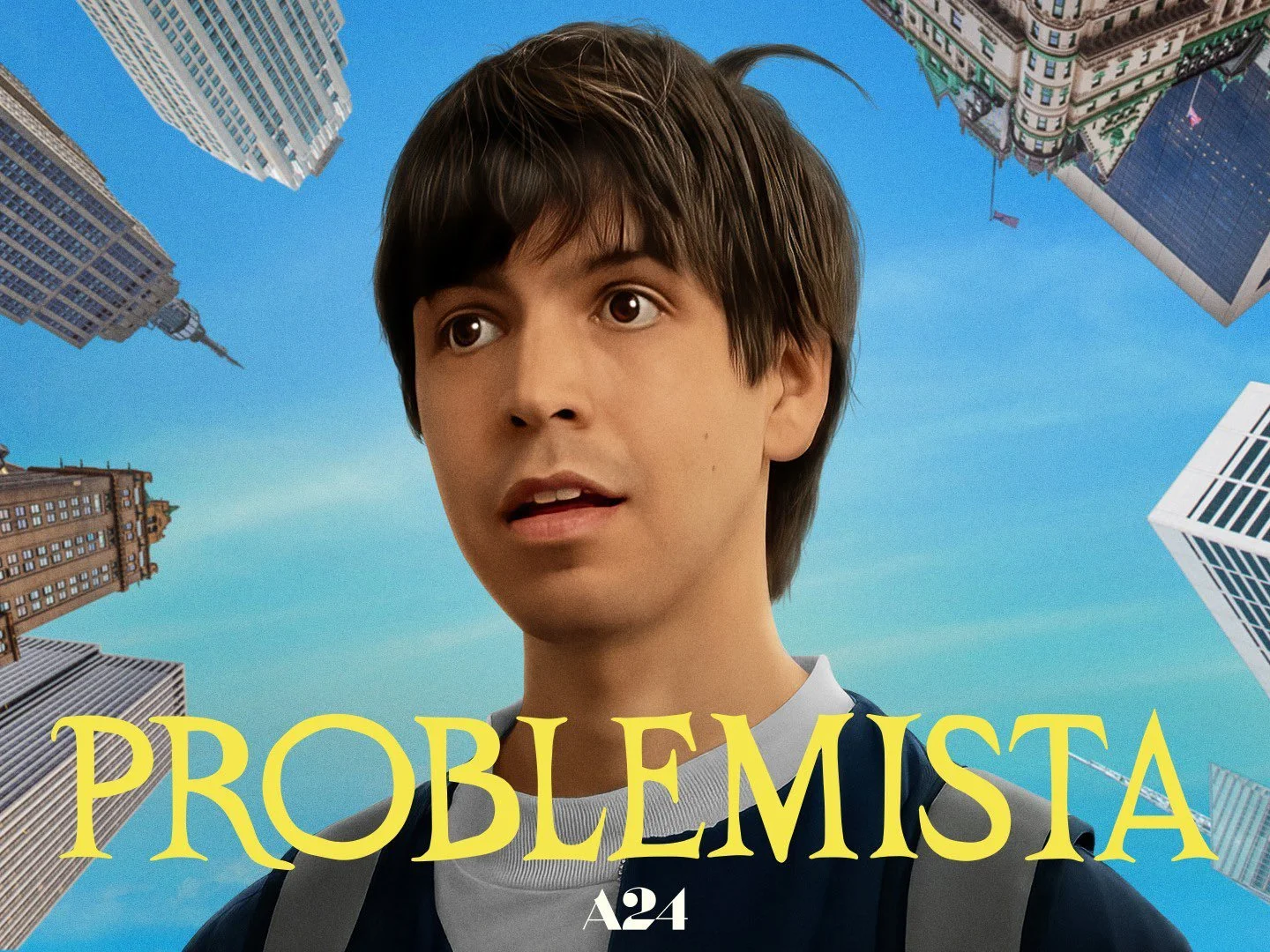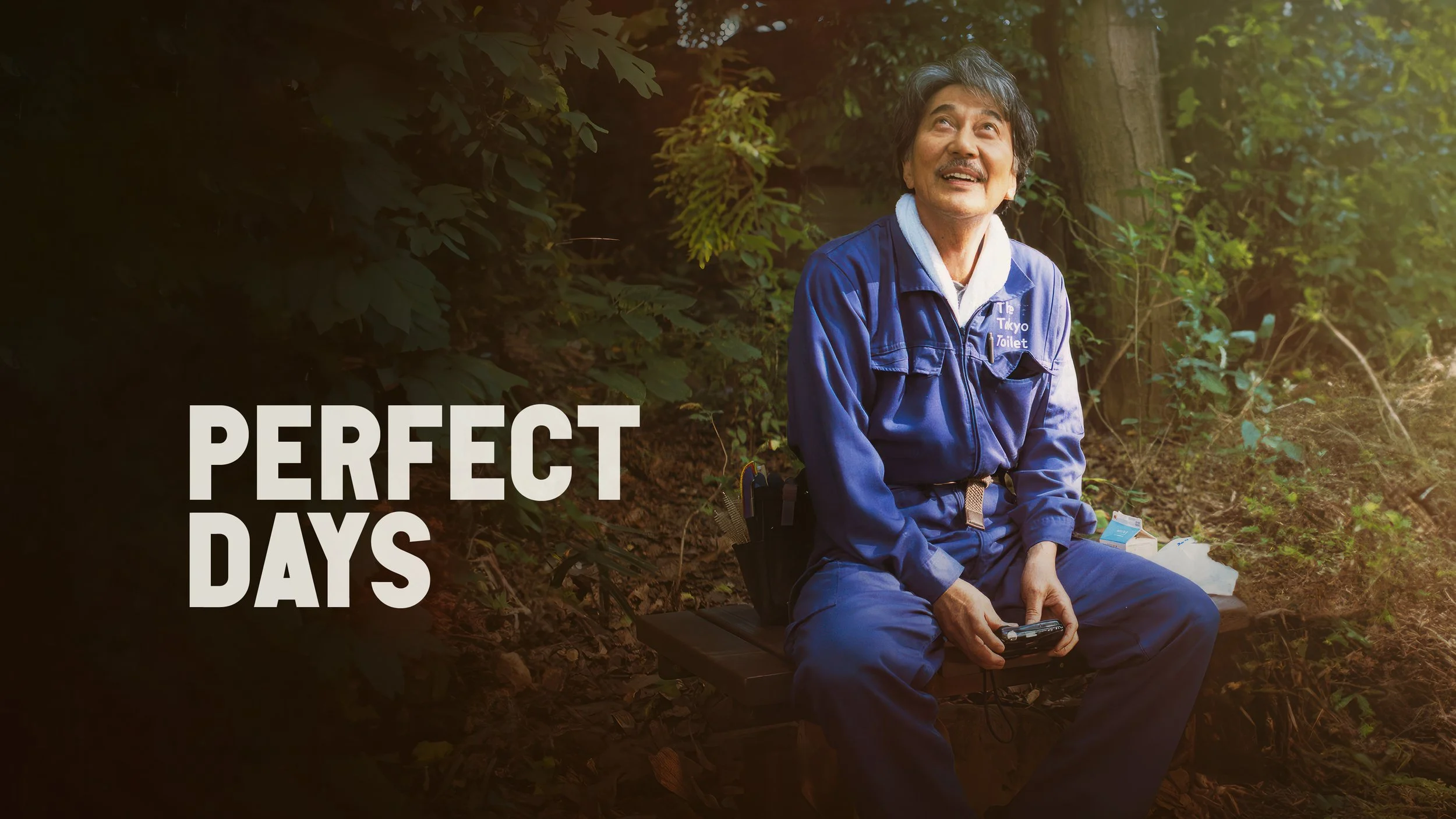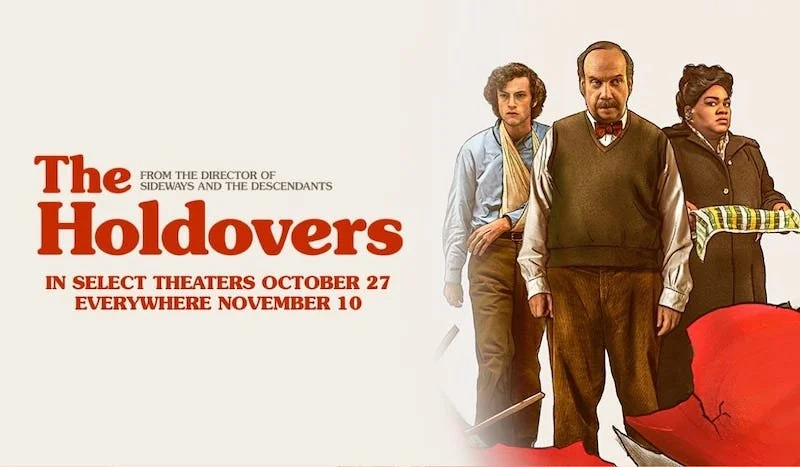Recommendation: 3/5 Stars, STREAM
Plot: “A seriously ill schoolteacher becomes dependent on a "miracle" drug that begins to affect his sanity.” -IMDB
Review: The 1956 film, Bigger Than Life, opens with a scene that has become all too familiar in present-day America. Ed Avery (James Mason) is an overworked and underpaid schoolteacher. To make ends meet, he is keeping a secret from his wife and son. He is working a second job for a taxicab company. To keep his wife from worrying, he invents a myriad of lies; school board members, needy students, and overbearing school administrators are all keeping him late. Innocent enough, this isn’t the only lie Ed is keeping.
For weeks, he has been battling intense pain throughout his body. Episodically, the pain is so bad, he can barely tolerate it. Once again, fearful of worrying his family, he hides his illness the best he can. Like lots of men, he refuses to see a doctor. Instead, he hopes the pain will one day mysteriously disappear.
When he finally passes out in front of his family, both of his tightly held secrets come to light. Afraid, he is rushed to a hospital. After an extended stay and a battery of tests, it is discovered that he suffers from a mysterious illness that causes fatal inflammation of his arteries. Without medical intervention, his doctors give him less than a year to live.
Luckily for Ed, a new drug has hit the market called Cortisone. If he can manage the required four pills every six hours for the rest of his life, it is believed he can live a long and happy one. Weighing life and death, Ed chooses the medication.
At first, everything seems to be returning to normal for the Avery family. Ed has a new lease on life. His wife, Lou (Barbara Rush), finds some much-needed relief and calm. Ed is even finding more time to connect with his son, Richie (Christopher Olsen). But then Ed becomes forgetful of his routine. He forgets to take his pills or doubles the required amount. This leads Ed down an angry and irrational path toward a mental breakdown and complete change in personality. Long gone is the sweet, caring man enraptured by love for his family. Standing in his place is a pompous man, threating to leave his wife and pushing his son way too hard.
When you watch this film, there are two scenes I would love you to pay attention to as examples of Ed’s breakdown. One scene takes place between Ed and his wife in their bedroom. Ed is determined to leave, travel the world, and escape the shackles of a relationship he finds intellectually stagnating. The other scene takes place between Ed and his son in the backyard. What begins as an innocent game of tossing the football around, soon morphs into an overbearing father attempting to break the soul of his child to make him the best athlete possible.
Where this film ventures from here, you will never guess (one of its great strengths). Honestly, it left me stunned and gave me strong Psycho vibes. What I found more interesting was attempting to absorb this film through the lens of 2024. We have learned powerful lessons about the toxic and harmful nature of patriarchy. Personally, I have no desire to live in a world where women are expected to be caretakers of the home and children, and aspire to nothing else. I do not want to live in a world where children are not afforded autonomy and choice regarding the direction of their lives. I certainly do not want to return to a world where a man’s word is final, because he is the sole leader of the household.
It is this bygone view of the world that holds this film together. It is a product of the world in which it was created. While we have evolved (I hope), this film and countless others like it exist as a time capsule of our not-so-distant past. For that and so many more reasons, I recommend you give this film a chance.
Be good to each other,
Nathan
Reviews
Cinephile No. 1,139 “Problemista”
Recommendation: 3/5 Stars, STREAM
Plot: “Alejandro is an aspiring toy designer from El Salvador struggling to bring his unusual ideas to life in NY. As time runs out on his work visa, a job assisting an erratic art-world outcast becomes his only hope to stay in the country.” -IMDB
Review: As a parent, you create a world of safety and security for your child. In your protection, you push them to chase their wildest dreams. You do this fully cognizant of what waits beyond your door. Far removed from the bubble of your love, they will face heartache, ridicule, impossible odds, countless obstacles, and unfathomable challenges beyond your consideration. As painful as it can be to let them go, you do so with a quiet hope that you have left a positive mark that will guide them forward.
Problemista takes this framework and adds another layer of intrigue. Alejandro (Julio Torres) isn’t just chasing his dream of becoming a toy designer in the rough and tumble world of New York City. He is the embodiment of his mother’s aspirations, who lives in his homeland of El Salvador. As an immigrant in the United States on a work visa, Alejandro must continue to work to maintain his status. For now, that work is an entry level position at a cryogenic company, while he chases his dream of designing toys.
A simple mistake jeopardizes everything and puts him on a collision course with Elizabeth (Tilda Swinton). For her part, Elizabeth, whose husband is frozen at the cryogenic center, can be summed up as a challenging grinch who uses power and privilege to get her way. This often means bullying others.
They cross paths when Alejandro is fired from his job for accidentally unplugging Elizabeth’s husband. After a brief exchange leaving the center, Alejandro recognizes an opportunity to stay in the U.S. If he can assist Elizabeth launch an art show of her late husband’s work, she promises to sign the necessary paperwork that will keep our lead character in the country and pursuing his dream.
In so many ways, this is a complex film. At its core, it is an immigrant story. It is about passionately chasing your dreams. It is about love, loyalty, and seeing the best in your partner (even if the rest of the world doesn’t see it the same way). This is also a peculiar dark comedy that reminded me of another A24 film, Everything, Everywhere, All at Once. Without a doubt, Tilda Swinton, known for her dramatic work, gets the biggest laughs in the film. Hailed as a Hydra, who can always find something to be disappointed about in others, she is confrontational and downright unbearable.
Alejandro functions as the “Elizabeth whisperer.” He often needs to calm her down and translate her outbursts to those in her crosshairs. Together, they make a comedic duo as they chase down missing art pieces, build a database, and work toward a gallery show.
This isn’t a passive film experience. It demands some engagement, because we don’t honestly reach the showing. If Elizabeth is unable to sell her partner’s paintings, what does this mean for Alejandro? Will he be forced to leave the country and say goodbye to his Hasbro dream? I applaud the filmmakers for keeping the intrigue high.
But this is also a movie with some challenges. For Alegandro and his mother, I would have preferred a deeper and more nuanced backstory. We get plenty of flashbacks between Elizabeth and her partner, but beyond the opening scene, we don't get anything that grounds our lead character. There is also a moment when Elizabeth’s tormenting of others will begin to wear on your nerves. For me, it was at about the 60-minute mark. Based on your level of patience, your results may vary. Finally, this movie functions best as a comedy, but I think it misses some opportunities to round out the characters in some of the film’s more serious moments.
Still, this is a film I would recommend. In a cinematic world struggling to produce adult-oriented comedies, this one satisfies.
Cinephile No. 1,131 “Perfect Days”
Recommendation: 4/5 Stars, SHOWTIME
Plot: “Hirayama cleans public toilets in Tokyo, lives his life in simplicity and daily tranquility. Some encounters also lead him to reflect on himself.” -IMDB
Review: My idea of perfection has evolved significantly over the last twenty years. Straight out of college, I assume happiness would be found in a big modern house, a new car every five years, a career defined by notoriety, a bank account bursting at the seams, a loving partner, and perhaps a few kids to call my own.
As I kick and scream my way into the midway point of my years (I hope), perfection is now a roof overhead, things that give me joy, experiences that add value to my life, a career that gives me purpose and ample space to make a difference, enough money to feel comfortable, opportunities to travel, and a loving and supportive partner.
My idea of perfection has morphed to meet the realities of my life. This sort of perfection now feels attainable. Knowing this, I am not sure I would have appreciated co-writer and director Wim Wenders’ “Perfect Days” as a younger man. But now, as a forty-year-old man searching for a new form of perfection, it makes perfect sense.
This film centers itself on Hirayama (Kôji Yakusho). Every day, Hirayama rises with the sun and to the sound of a neighbor sweeping the street and sidewalk. He methodically folds his bed, waters his treasured plants, and brushes his teeth. Before leaving, he shoves a few personal items, including a camera, into his pockets. He greets each new day with a smile, grabs a coffee to go, and as the sun crests over Tokyo, he carefully selects a cassette tape, and then heads for work.
Much of this film is about finding joy in modest and simple living. This is evident in the smile Hirayama greets each day before heading to work. This is also a film about finding pride in your job. Some might assume this is an impossible task when your work is cleaning public restrooms in busy Tokyo. In these moments, Hirayama defies our expectations. His work is a reflection of himself. It represents an amalgamation of all he is. I found a lot to appreciate in these moments, and much to think about when considering the more mundane aspects of my work.
While watching the quiet beauty of this film unfold for the first 45 minutes, you might ask yourself the same question I did. “Where will the conflict in this story come from?” We’ve been conditioned to believe that all stories require some form of conflict. Our characters must rise to meet some moment, or this may be nothing more than a story about a solitary man who finds joy in a job done well.
When the conflict finally presents itself, it meets the emotional core of what we have experienced thus far. It first comes in the form of an employee who doesn’t show the same level of care for his work as Hirayama. Then conflict comes from an unexpected break in routine. Next, this is followed by an unexpected visitor, Niko (Arisa Nakano), Hirayama’s niece. When pulled together, we finally begin to question why Hirayama spends so much time alone. Up to this point, we have grown to respect and honor the meditative solitude of his life, but it is at these moments that we begin to wrestle with the trauma that may have forced this condition.
This film could have made a tonal shift in these moments, but it stays true to itself and the path we have traveled. Things are left unsaid. Moments between Hirayama, Niko, and her mother are allowed to linger. We never get a clear picture (this includes the purpose of the photos Hirayama takes). To make this choice as a filmmaker is a hard one. Audiences so often demand closure. They like stories tied up in neat little packages. Wim Wender refuses that urge and pressure. Instead, he allows the camera to focus on the main character as tears stream down his face. Then he asks us to question perfection.
Be good to each other,
Nathan
Musical Thesis: Manchester Orchestra “A Black Mile to the Surface”
At the center of every album is a musical thesis. This thesis can be the driving force behind the album, a theme that interweaves songs together, or a feeling you are left with after the last song plays. With some albums, the thesis is easy to find. On others, it is hidden and requires you to be more than a passive listener. These reviews are not about rating an album. Instead, it is about uncovering a musical thesis.
I imply to mitigate the guilt, we could align
A perfectly constructed alibi
To hush the violent guilt that eats and never dies
In actual blame, they call me once the dark divides
I do not mean to disrespect or belittle the music that dominates the charts. I am often too quick to dismiss many of these songs as overly simplistic and afraid of breaking new boundaries. I say this, but I know there is a form of escapism in them. For me, comfort over conflict will always be the aim, but I don’t consider myself the average listener.
Digging through my collection, you might find me hypocritical. You would see that I too am guilty of loving songs that require much of me. But then you would land on a band such as Manchester Orchestra.
Manchester Orchestra requires some work on behalf of their listeners, and their album, A Black Mile to the Surface, is a perfect example. This album is a solid collection of songs containing multitudes. Looking at a sample of lyrics from the song, “The Math,” above, you see a song that is wonderfully composed, beautifully written, reflective, and heartbreaking. This is an album filled with stories masquerading as songs where heroes and villains slowly reveal themselves. In each verse, you can find through lines to your own life. As you do, you will discover new challenges to wrestle in the deepest recesses of your mind.
For me, this is the purpose of art. Good art entertains. Great art challenges. As I grow older, I find myself drawn to music, invoking a strong emotional reaction. I want to be surprised. I want to be shocked. I want to be challenged. I want to look at my own life through songs and realize I am not alone. At this point in the adventure, I need to know that my experiences are not unique, and there is someone out there who can relate. I need these things so much more than I need to escape.
As they do with almost every album, Manchester Orchestra challenges me. They give me art that takes some time. The mysteries here do not reveal themselves quickly. I adore the invitation to stick around for a while.
Be good to each other,
Nathan
Cinephile No. 1,122 “All of Us Strangers”
Recommendation: 5/5 Stars, SHOWTIME
Plot: “A screenwriter drawn back to his childhood home enters into a fledgling relationship with a mysterious neighbor as he then discovers his parents appear to be living just as they were on the day they died, 30 years before.” -IMDB
Review: “All of Us Strangers” is a challenging film to discuss without spoiling vital moments in the story. Instead of analyzing the plot, I want to spend some time in this review examining what this film did to me. At the end of that reckoning, I hope to impress upon you the necessity of seeing this film as fast as humanly possible.
Imagine for a moment that you could have a conversation with someone from your past. That person could still be living, or their time on Earth could have already ended. If you had the chance, what would you say in such a conversation? What would you confess? How would you seek clarity? How would you uncover truth? How would you express all the moments in your life they have missed? It is this thought exercise that serves as the foundation for this film.
As I watched this story unfold, and in the days that followed, three people consumed my attention. Thinking of my grandmother, my father, and my youngest brother, I cannot help but apply this thought experiment to my life. If given the chance, I would love to show my grandmother what has become of my life. Talking with my dad, I would hope to squeeze out any remaining wisdom he deemed important. Speaking with Lucas, I am consumed by the dizzying number of questions encircling someone stolen so violently from my family.
In this film, Adam (Andrew Scott), plays a struggling screenwriter whose parents died in a car crash thirty years ago. Mysteriously, he gets the opportunity to share space with his parents. He is given the opportunity to reveal the arc of his life. He gets to come out to his parents and reveal his authentic self. He wrestles with the violent ending of his parents’ life and its devastating impact. And he gets to do this in a budding and supportive relationship with his confident and flirtatious neighbor, Harry (Paul Mescal).
As he does, we question whether he is mentally breaking down or if something else is happening here. The answer to that question is not necessarily important, not as important as the revelations uncovered and the mirrors shining on our own lives.
The people who love us most in this world can never truly and completely know us. Our parents, siblings, romantic partners, and best friends are strangers at the end of the day. We are strangers to them as well, at least some portion of us remain so. No matter how we try, we can never fully know someone, and we can never fully be known. Even if, through some mystical opportunity, we were given the opportunity to converse with those absent from our lives, we would discover we are all just strangers.
For me, this is a powerful epiphany, but so is the revelation that time is a precious and rare commodity. We do not have long to tell those we love how we feel. One day, grief will be all that we have. I have heard it said, “that grief is nothing more than all our unexpressed love.” This movie cements this idea within me. When you decide to spend time with this story, I am confident it will make you feel the same way. That is powerful. There is opportunity in such a realization. For this gift, I cannot recommend this film enough.
Be good to each other,
Nathan
Ideal Setlist: Jimmy Eat World, Manchester Orchestra, and Middle Kids
On 8/11/23, I watched Jimmy Eat World, Manchester Orchestra and Middle Kids play The Criterion in Oklahoma City, OK.
I have been lucky enough to attend countless concerts. On more than a few occasions, I have experienced a live music moment that felt rare and special. I stood in amazement as Wilco, Ben Gibbard, and Jenny Lewis performed a cover of California Stars together. I have pinched myself while watching Death Cab for Cutie play Transatlanticism from beginning to end. I have seen Eric Clapton. I watched Bruce Springsteen & The E Street Band mesmerize a crowd for three hours. I attended U2 360.
Seeing Jimmy Eat World, Manchester Orchestra and Middle Kids play in my adopted hometown of Oklahoma City with a couple of great friends from college felt like a ripe opportunity to again experience an unforgettable moment. Outside of a festival, I cannot remember a lineup featuring three bands I absolutely adore. Knowing this, the promise of something special seemed real.
This was my third time seeing Jimmy Eat World. This was my first time seeing Manchester Orchestra and Middle Kids; both are bands I have been following for some time. As a collective, they absolutely blew me away. For three hours, we sang at the top of our lungs, got lost in the music, and patted ourselves on the back for knowing Middle Kids before everyone else in the room. As the show closed, that special feeling washed over me again. Without a doubt, this is one of those shows that will stay with me forever.
As far as my ideal setlist is concerned, the songs below are a collective representation of all three bands. The playlist includes songs I have returned to most often. You will not find a song from every album, nor are all my favorite songs listed. Instead, this is a list of songs that keep me coming back for more. As always, I would love to hear from you. What is your ideal setlist?
Be good to each other,
Nathan
An Attempt (Baked Goods): Basque Cheesecake
“An Attempt” is a reoccurring series on Natetheworld.com. In the series, we take a recipe found via a cookbook, website, or app, and attempt to recreate it using the instructions provided. “An Attempt (Baked Goods)” is my current writing project and focuses solely on baked treats.
Recipe: To read the original recipe, please click here.
Introduction: When it comes to cooking or baking for the holidays, I overdo it. With simple requests that everyone bring a side dish, I always bring two or three. I am a kid from a big family. There is some part of me that will always wonder if there is enough food for everyone. This year, I intended things to be different. Once again, I failed.
For this year’s Thanksgiving dinner, I made Smoked Duck, Roasted Cauliflower with Chipotle and Lime, and a Basque Cheesecake.
I love cheesecake. I love it so much that I should have been the fifth roommate on The Golden Girls. Without a doubt, Sophia and I would have been best friends. Despite my love affair with the dessert, I have never attempted to make my own. While scrolling through The New York Times Cooking app to find inspiration, I stumbled across the recipe for Basque Cheesecake. Instantly, I felt called by the spirits of Blanche, Dorthy, Rose, and Sophia to give it a shot.
Reaction: Hailing from the Basque region of Spain, this cheesecake is velvety, crustless, and browned to near perfection on top. I found it simple to assemble, and its rustic presentation was alluring. But don’t let looks fool you. This cheesecake is delicious and not overly sweet.
I was shocked by how easily everything came together. Watching it rise in the oven, expand, and then brown on top, I had a sneaky suspicion I knocked this one out of the park. Hours later, with a stomach bloated from my second helping of Thanksgiving goodness, I finally dug into my creation. My suspicions were correct. This is one of those desserts I cannot wait to make again for anyone who lets me.
Be good to each other,
Nathan
Cinephile No. 1,114 “Godzilla Minus One”
Recommendation: 5/5 Stars, SHOWTIME
Plot: “Post war Japan is at its lowest point when a new crisis emerges in the form of a giant monster, baptized in the horrific power of the atomic bomb.” -IMBD
Review: I hesitate to call any film perfect. The debate and expectations that such a lofty statement creates can often prevent me from trusting my initial reaction. Instead, I often say, “This film is perfect for me, and my version of perfection will differ from yours.”
I find perfection in films that can elicit a strong emotional reaction, often drawn from a profound sense of empathy, but it can also be joy, happiness, anxiety, frustration, or a thousand other emotions. The more I considered Godzilla Minus One, the more I found myself consumed by its ability to elicit awe. Without a doubt, this is the greatest Godzilla movie ever made. It reminded me of Fridays spent with my brothers watching classic monster movies. It reminded me of the magic of cinema.
Pilot Koichi Shikishima (Ryunosuke Kamiki) serves as the through line in this story. It is his story that becomes so much more than a personal journey. Rather, his redemptive story reflects and mirrors the journey of his country of Japan.
In the last days of World War II, Shikishima lands on an island off the coast of Japan. We believe his Kamikaze mission failed because of mechanical issues with his plane. It is not long before we discover this is far from the truth. This serves as his brush with cowardice, but it will not be his last. As Godzilla rises from the sea to take the small island, destroying his plane, and killing almost everyone stationed there, Shikishima experiences his second brush with cowardice. Unable to pull the trigger and kill the attacking monster, he escapes the island with little more than his life.
He returns home with a wounded ego. This version of Japan differs vastly from the one he left. In the shadow of two atomic bombs and war, his fellow citizens attempt to pick up the pieces and start again. For Shikishima, his shame is becoming all-consuming, but he is no longer alone. As he returns to his family’s home, he encounters a young woman, Noriko Oishi (Minami Hamabe), with an orphaned child and nowhere to turn. In her hour of need, he offers them a place to stay. Here, the road to redemption begins.
As Shikishima and Japan begin again at zero, the same atomic weapons that leveled their cities are forcing Godzilla to morph and grow. When Shikishima takes a job on a small patrol boat meant to sweep mines from the sea, we get our first encounter with Godzilla in his new God-like form. Massive beyond description, a captivating chase scene unfolds. It is in this jaw dropping and awe-inspiring scene that I first felt a hint of perfection. As Shikishima and his shipmates escape with their lives, we know this is just the beginning. The monster from the deep will not find satisfaction. He will come ashore, and Japan will take one more step backward.
When Godzilla finally attacks, he does so with utter devastation and calamity. Far removed from the orgy of CGI that defines most Hollywood movies, the hell Godzilla unleashes here feels believable. The filmmakers draw you into this moment by using sound in clever and creative ways. For the rest of my film-watching days, I will remember the quiet chaos of these moments.
Despite the rubble, death, and destruction, the Japanese people do not lose hope. A grassroots effort and a plan to send Godzilla back to the sea leads the path toward redemption. This plan doesn’t come from high above. The common man puts it into action. For Shikishima, it presents the perfect opportunity to rise about his past failures. It is an opportunity to participate in “a war not yet won.”
The concluding battle is not something I will spoil. It is both a spectacle, yet beautiful in its simplicity. More than ordinary people warring against a gigantic creature, it is filled with symbolism stretching beyond the bounds of this film. On display is the triumph of man, a new chapter for the Japanese people, and a new day for Japan on the world stage. It is these moments that sealed this film’s fate for me. This is as close to perfection as a science fiction film can get.
Be good to each other,
Nathan
Sauce: The Paloma
Cocktail: The Paloma
Ingredients: 2oz. Blanco Tequila, 0.5oz. Fresh Lime Juice, Grapefruit Soda, Lime Wedge for Garnish
Directions: In a cocktail shaker filled with ice, add tequila and lime juice. Shake and strain into a rocks glass filled with ice. Top with grapefruit soda and garnish with lime.
Bartender Reaction: I do not care for grapefruit. I do not care for grapefruit flavored drinks. But I do like Fresca, the grapefruit/citrus flavored soda. What can I say? I am a man defined by contradictions.
Recently, we hosted a movie night/dinner party at our apartment. I love gatherings such as these, because they give me the opportunity to play bartender. I knew I did not want to spend all night making drinks. Before my love of cocktails, I am a cinephile who hates missing key plot points. With this in mind, I reached for something simple.
Thumbing through my recipe books, I came across a cocktail classic, The Paloma. At first, I hesitated to make something where grapefruit was the star of the show. Then, I remembered my old friend, Fresca.
In the kitchen, I whipped up a batch for my friends. Then I spread them around the room, offered a toast, and drank. For me, Fresca saves the day. Coupled with lime and tequila, this version of The Poloma is sweet, with just a subtle hint of bitterness. This is a perfect recipe for those of us who do not care for grapefruit.
Be good to each other,
Nathan
Cinephile No. 1,110 “The Holdovers”
Recommendation: 4/5 Stars, SHOWTIME
Plot: “A cranky history teacher at a remote prep school is forced to remain on campus over the holidays with a troubled student who has no place to go.” -IMDB
Review: Every student I have ever known circled the holidays on their calendar. The welcome break, custom-built into the calendar, meant time with family, holiday traditions, presents, and a much-needed vacation from school. Then, during my freshman year of college, I had to return to the dorms early. I had a job at a retail bookstore. It being the holidays and the busiest time of the year, I could not convince my supervisor to give me the entire two weeks off.
Walking around the dorm, much to my amazement, I came to discover I was not alone. The halls were still eerily empty except for the international students who couldn’t make the long flight home, and students, such as myself, forced back to the trenches of holiday retail. It should have seemed so obvious, but I never realized the potential stories that could be told about those left behind.
The Holdovers focuses on a remote prep academy for boys and their professor who rules with an iron fist, Paul Hunham (Paul Giamatti). With the holidays lurking around the corner and final exams complete, the students dream of hitting the slopes, visiting family and friends, and escaping to exotic locations. For an unlucky group of four students, there will be no reprieve or escape from the hallowed halls of the prep school. No one is coming to rescue them. They are holdovers, and they are stuck spending the holidays with Professor Hunham.
From this concept, one of the funniest, emotionally rich, and cutting comedies I have seen in years is born. The film explores every facet of the characters who anchor this story. From entitlement to loss and to a closed off life, nothing is safe or off the record. Things get even more interesting when four of the students leave campus with permission to join a fellow student at a mountain escape. This leaves one student standing, Angus Tully (Dominic Sessa), alongside the professor and Mary Lamb (Da’Vine Joy Randolph), the campus cook.
Heartbroken and disappointed, we find Angus dismayed by his circumstances. Naturally, he tests the limits of his professor. This provides some of the funniest moments of the film, but it also provides moments of emotional breakthrough as each character explores their personal definitions of home.
While the relationship between Angus and Professor Hunham is fascinating to watch unfurl, it is Mary Lamb, played masterfully by Randolf, that serves as the heart of this film. Angus and the professor are mirror images of each other, but meet Lamb as she works through the complexities of a child lost to war. By every measure, her story colors the background of the film and gives it a richness I did not expect.
As this movie enters its third act, we escape the stuffiness of campus. Mary heads toward the comforting arms of family. Angus and Professor Hunham turn toward Boston. In these moments, we see the culmination of all we have built toward. It is these scenes where an unshakable truth reveals itself, and we witness a true evolution.
From the trailer alone, I expected this film to be funny. I did not expect it to be so emotionally gripping and heartfelt. Without a doubt, it is a movie I will return to again and again with the passing of each holiday season.
Be good to each other,
Nathan










